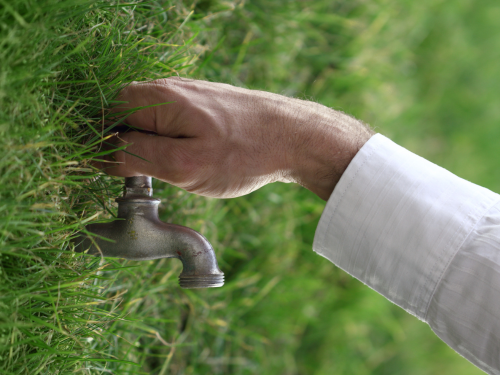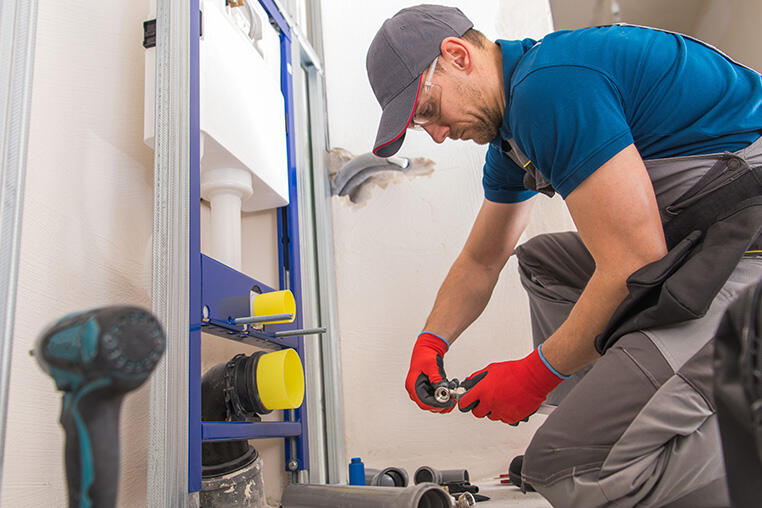Eco-Friendly Plumbing Systems: Boosting Your Dwelling's Environmental Impact
Eco-Friendly Plumbing Systems: Boosting Your Dwelling's Environmental Impact
Blog Article
This article following next relating to Sustainable plumbing solutions for your home tips is exceedingly insightful. Check it out for your own benefit and figure out what you think about it.

Intro
In today's globe, sustainable living is ending up being progressively important. One area where home owners can make a substantial effect is via environment-friendly plumbing solutions. By taking on environmentally aware techniques, families can decrease their water and power usage while contributing to a much healthier world.
Water-Efficient Fixtures
Typical fixtures typically drainage unnecessarily. Nevertheless, modern-day low-flow toilets, taps, and showerheads are made to lessen water use without compromising performance. These components can dramatically minimize home water consumption, bring about lower water bills and a lowered environmental footprint.
Greywater Solutions
Greywater refers to carefully used water from resources such as showers, sinks, and washing makers. Instead of letting this water go to waste, greywater systems recycle it for non-potable uses such as landscape irrigation and bathroom flushing. By applying a greywater system, homeowners can conserve fresh water resources and reduce strain on community wastewater treatment facilities.
Rainwater Harvesting
Rainwater harvesting involves collecting and saving rain for different objectives, including irrigation, bathroom flushing, and laundry. Rain harvesting systems commonly consist of a collection surface (such as a roofing system), gutters, downspouts, and storage tanks. By harvesting rain, house owners can decrease their dependence on local water sources and conserve fresh water resources.
Solar Water Heaters
Traditional hot water heater rely upon nonrenewable fuel sources or electrical power to heat water, contributing to carbon discharges and energy usage. On the other hand, solar water heaters utilize sunlight to warmth water, supplying a sustainable and eco-friendly choice. By utilizing solar energy, homeowners can reduce their power bills and decrease their carbon impact.
Eco-friendly Pipeline Materials
Standard plumbing materials such as copper and PVC can have adverse environmental impacts throughout manufacturing and disposal. Nevertheless, there are lasting alternatives available, such as recycled steel, cross-linked polyethylene (PEX), and high-density polyethylene (HDPE). These eco-friendly pipeline materials use resilience, longevity, and reduced environmental influence.
Energy-Efficient Devices
Along with water-efficient fixtures, energy-efficient appliances can further lower a family's ecological footprint. High-efficiency cleaning machines and dishwashers use less water and power per cycle, helping to save resources and reduced energy bills. When buying devices, look for ENERGY STAR ® certified designs for optimal efficiency.
Smart Water Management Systems
Advances in innovation have made it simpler than ever to keep track of and optimize water use in the home. Smart water administration systems utilize sensors and information analytics to track water use in real-time, determine leaks, and offer insights for preservation. By applying smart water monitoring solutions, home owners can decrease waste and make the most of efficiency.
Price Considerations
While environmentally friendly pipes choices may have greater upfront prices than typical alternatives, they usually offer lasting financial savings through minimized water and power bills. Additionally, numerous federal governments supply incentives such as refunds and tax obligation credit scores for environment-friendly upgrades, aiding to counter first expenditures.
Installment and Upkeep
Proper installation and regular maintenance are essential for ensuring the effectiveness and longevity of green pipes systems. It is necessary to employ competent professionals to mount and service these systems to prevent issues and maximize performance. Regular maintenance jobs such as checking for leakages and cleaning up filters can also aid protect against issues and optimize performance.
Environmental Benefits
The ecological advantages of eco-friendly pipes are significant. By preserving water and energy, home owners can reduce their carbon impact and decrease their impact on natural deposits. In addition, eco-friendly plumbing methods can aid protect communities and protect biodiversity for future generations.
Wellness Conveniences
In addition to environmental benefits, environment-friendly pipes can additionally contribute to improved indoor air high quality and wellness. By utilizing safe materials and reducing chemical exposure, property owners can produce a much healthier living atmosphere on their own and their households.
Government Incentives
Lots of federal governments offer financial rewards to motivate homeowners to embrace eco-friendly pipes practices. These rewards might include rebates, tax credit reports, and low-interest lendings for energy-efficient upgrades. By taking advantage of these programs, property owners can make environmentally friendly enhancements much more economical and available.
Conclusion
Finally, green pipes alternatives provide numerous advantages for property owners and the setting alike. By purchasing water-efficient components, greywater systems, rain harvesting, solar water heaters, green pipe products, energy-efficient home appliances, clever water administration systems, and various other sustainable solutions, households can lower their ecological footprint, lower their energy bills, and add to a much healthier world for future generations.
Eco-Friendly Plumbing Solutions for Your Home
When it comes to maintaining a home, it’s important to consider the impact your plumbing has on the environment and your wallet. Eco-friendly plumbing solutions can reduce your carbon footprint and also can lead to significant savings on your utility bills. In this article, we will explore various eco-friendly plumbing options that you can easily implement in your home. From low-flow fixtures to tankless water heaters and rainwater harvesting, these solutions will not only benefit the planet but also enhance your quality of life.
1. Water Conservation: Eco-friendly plumbing helps you use less water, preserving this precious resource. 2. Energy Efficiency: Many eco-friendly options reduce energy consumption, cutting down on greenhouse gas emissions. 3. Reduced Utility Bills: With less water and energy usage, your monthly bills can become more budget-friendly. 4. Sustainability: Your choice to go eco-friendly contributes to a sustainable future for generations to come. Low-Flow Fixtures: Saving Water Without Sacrificing Comfort Low-flow fixtures are a simple yet effective way to reduce water usage without sacrificing your comfort. These fixtures include low-flow faucets, showerheads, and toilets: 1. Low-flow faucets and showerheads restrict water flow, saving gallons of water each day. 2. Low-flow toilets use less water per flush, reducing water waste. 3. Choosing WaterSense-certified fixtures ensures both efficiency and performance. 4. Easy installation means you can start saving water right away. Tankless Water Heaters: Efficient and Endless Hot Water
1. Energy Efficiency: Tankless heaters only heat water when needed, reducing standby energy loss. 2. Endless Hot Water: Say goodbye to running out of hot water during long showers or laundry sessions. 3. Space Savings: Tankless units are compact and can be installed in tight spaces. 4. Professional installation ensures proper operation and maximum efficiency. https://wittmaierplumbing.com/eco-friendly-plumbing-solutions-for-your-home/

Do you really like reading up on ? Post a remark directly below. We'd be pleased to see your feelings about this blog posting. We hope that you visit us again in the future. Appreciated our post? Please quickly share it. Help other people check it out. We thank you for reading our article about Environmentally Sustainable Home Plumbing.
Book Report this page